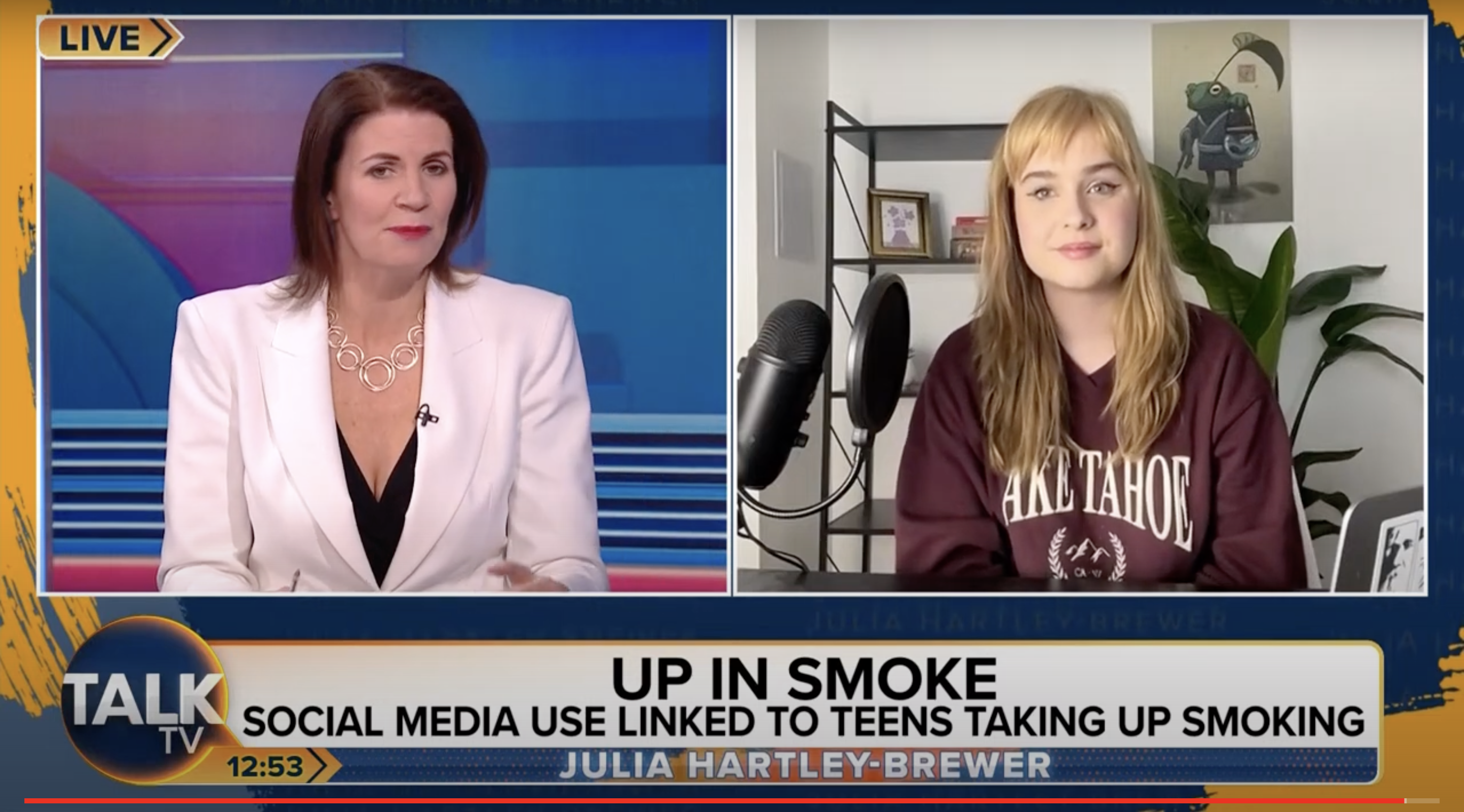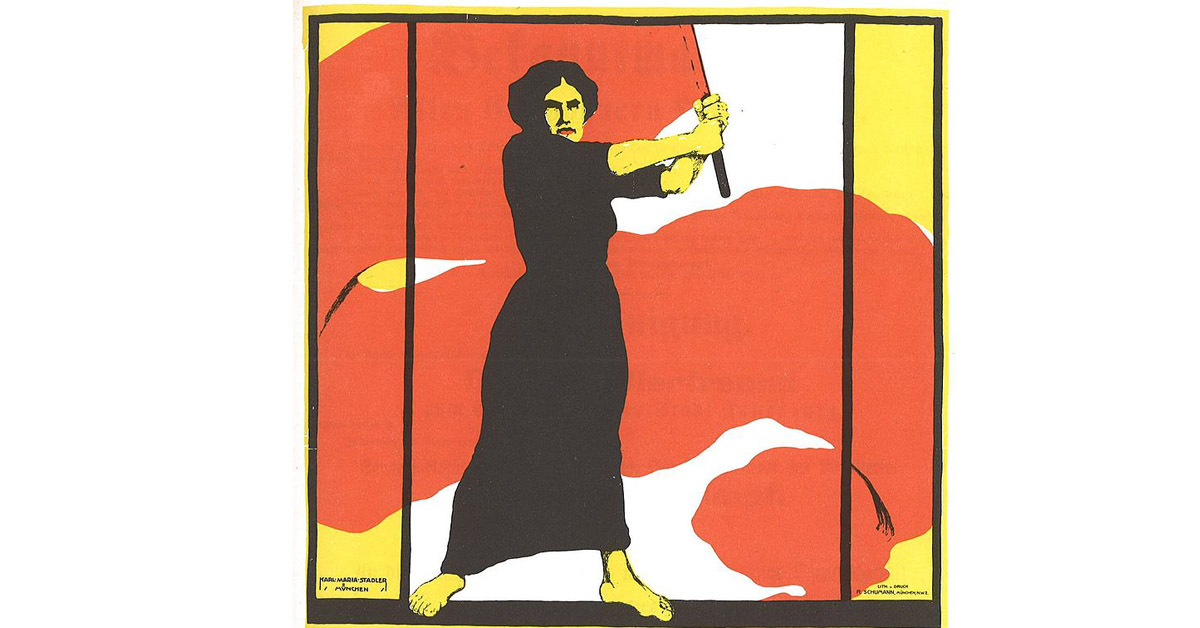
Anna Shnaidman On Liberty And Feminism

Anna Shnaidman, the President of LOLA Israel, emphasizes the interconnection between freedom, feminism, and personal development in her op-ed. She advocates for challenging societal expectations, supporting personal growth among women, and the role of libertarian principles in fostering a society where women are empowered to achieve equality and freedom.
Jess Gill Discusses Vaping and Social Media on Talk TV

Jess Gill recently featured on Julia Hartley Brewer’s show on Talk TV to discuss the observed correlation between teen vaping and social media usage. During the segment, Gill emphasized that while there is a link between the two behaviors, it does not necessarily imply causation. She argued for the importance of emphasizing parental responsibility in guiding teen behavior rather than relying on government intervention to “protect” young people. Gill’s insights challenged viewers to consider the complexities of influence and responsibility in the digital age, advocating for more nuanced approaches to youth behavior and public policy.
Sabrina Riveiro On The Significance Of International Women’s Day
Sabrina Riveiro, Chapter Leader of LOLA Uruguay, discussed the true significance of International Women’s Day. She shares her insights on what this day represents for women’s rights and feminism.
Katherine Mangu-Ward Explains Why We Shouldn’t Fear AI

Katherine Mangu-Ward, a member of the LOLA Advisory Board, presents a techno-optimistic viewpoint on how AI will transform the job market, including journalism and beyond in a webinar for Fraser Institute.
Jess Gill Defends Gen Z Grammar on Talk TV

Jess Gill appeared on Peter Cardwell’s Talk TV show, defending Gen Z’s use of grammar. In a spirited exchange, Gill highlighted the generational differences in language use and addressed criticisms often directed at younger generations. She pointed out that while some may critique Gen Z’s grammar, there are more significant generational impacts to consider, such as voting patterns that have contributed to the current housing crisis. This, she argued, poses a real challenge for young people striving to own homes. Gill’s defense provided a fresh perspective on the evolving nature of language and the more critical socio-economic issues facing different generations.
Caitlin Peters Reviews The Movie Cabrini

Caitlin Peters, a member of the LOLA Los Angeles chapter and board member, reflects on the impact of the film “Cabrini,” which premiered on International Women’s Day, March 8th, highlighting the life of St. Frances Xavier Cabrini (Mother Cabrini) and her pioneering work among impoverished Italian immigrants in New York City. Through Peters’ eyes, the film not only showcases Cabrini’s remarkable accomplishments in establishing orphanages, schools, and hospitals but also delivers powerful lessons on entrepreneurial mindset, leading with love, and the importance of fundraising for liberty-oriented missions, resonating deeply with the advocacy for liberty.
Martina Lukasiak-Lazarska Explains Libertarian Feminism
Martina Lukasiak-Lazarska, the leader of LOLA Poland, was featured on the “Discovering Freedom” podcast, hosted by a Polish NGO, where she highlighted LOLA’s mission and the principles of libertarian feminism. She offered compelling reasons for why women should embrace the free market economy and capitalism as vital to their empowerment and liberation.
Izabela Patriota Discusses The Communist Roots Of International Women’s Day

In an interview on The Kim Monson Show, Izabela Patriota, Director of Development for Ladies of Liberty, explores the socialist origins of International Women’s Day, presenting it as a holiday deeply entrenched in feminist and communist principles. Patriota articulates her concerns over the direction of contemporary feminism, which she argues not only challenges traditional masculinity but also seems to discourage women from embracing their roles as mothers and wives. Drawing from her journey from Brazil to the US and her involvement with conservative think tanks, Patriota shares how these experiences have honed her appreciation for individual freedoms and responsibility, further solidifying her determination to address and counteract the contemporary feminist movement’s impacts.

